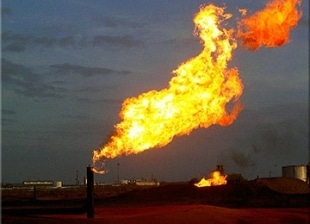Seventeen public interest groups, including the Environmental Integrity Project (EIP), have petitioned the U.S. Environmental Protection Agency (EPA) to close a loophole in U.S. laws that allows hydraulic fracturing operations to be exempt from disclosing the pollutants they release each year.
Under the current code, the fracking industry is exempt from having to disclose the pollutants that they release into the atmosphere every year, which is estimated by the EPA to be about 127,000 tons of pollution. These pollutants endanger both the environment and people living in and around areas where fracking wells are operated, and the lack of disclosure makes it difficult to pinpoint the cause of illnesses and properly diagnose people when they become sick from exposure.
That is why the EIP and other groups have created a petition that was sent to the EPA, hoping to convince the agency to once again consider adding the fracking industry to their Toxic Release Inventory (TRI), which contains information about the amount and type of pollutants released into the environment by U.S. companies. The last time the agency considered adding the fracking industry to the list was in 1996, but those discussions ended with the industry as the victor.
The purpose of the TRI is to provide the public with knowledge of what is happening in their own backyards so that they can make informed, fact-based decisions about their communities. With fracking operations expanding at a fevered pitch in the United States, amending the disclosure laws would certainly make communities think twice before leasing their land or sitting idly by as drilling takes place near their homes.
Along with the petition, the EIP has created a fact sheet detailing the importance of the TRI, and why the fracking industry needs to be included. From the fact sheet:
The TRI requires annual reporting of each industrial facility’s releases of over 650 TRI-listed toxic chemicals. In brief, the law requires refineries, chemical plants, power stations, and other sources to report toxic releases to the air, land, or water, as well as amounts sent for recycling, treatment or disposal, which result from the manufacture or use of TRI chemicals above certain threshold amounts.
The industry and its releases have vastly grown in the last decade with the advent of horizontal hydraulic fracturing (or “fracking”), which allows for the production of more natural gas, uses vastly greater amounts and volumes of chemicals, produces more wastes, and has allowed for a much bigger industry.
The industry is uniquely exempted from key provisions of major environmental laws, including the Clean Water Act, the Safe Drinking Water Act, and the Resource Conservation and Recovery Act.
A congressional report based on voluntary disclosures by the industry found that the industry regularly uses products containing at least forty-five TRI-listed chemicals, the most common of which are: methanol, 2-butoxyethanol, and ethylene glycol. Other TRI pollutants released when gas is flared or vented to the environment include benzene (a known carcinogen), hydrogen sulfide, and n-hexane. EPA estimates that the industry emits at least 127,000 tons of hazardous air pollutants every year, including benzene, xylenes, and hydrogen sulfide. This is more than any TRI reporting industry except electric utilities, and equivalent to thirty percent of the total release of hazardous air pollutants reported to the TRI for 2010.
EPA has also estimated that the average natural gas wellhead leaks hazardous air pollutants at a rate of 0.671 tons per year. Considering that the general TRI reporting threshold is 10,000 pounds per year, a small group of wellheads, along with the emissions of their associated components such as tanks and waste pits, could easily surpass this threshold in air releases alone. This is particularly true when considered with respect to emissions of naphthalene, an EPA-designated “persistent bioaccumulative toxic chemical” that has a threshold of only 100 pounds per year.
The petition hopes to add every part of the natural gas extraction process to the TRI – everything from transport of chemicals to drilling. Given the fact that other industries play by these rules, it would make sense to keep the entire dirty energy industry on the same playing field.
The petition comes at an important time in the U.S., as national presidential elections are just a week and a half away. Should the presidency go to Mitt Romney, the likelihood of the fracking industry being added to the TRI is slim, as Romney has promised to remove protections that are already in place, and not create new restrictions for the dirty energy industry.
On the other hand, President Obama has had almost four years to make a move on the loose regulations on the fracking industry, and has not taken a single step.
Unfortunately, this means that one of the best case scenarios would be that nothing changes. At worst, we could be looking at a reduction in the number of industries who are required to report to the TRI.
Subscribe to our newsletter
Stay up to date with DeSmog news and alerts







